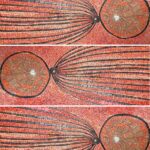Research Network on Military, War and Gender/Diversity | Militär, Krieg und Geschlecht/Diversität” (MKGD) (Web)
Time: 22.-23.01.2026
Venue: Potsdam
Proposals by – extended: 15.04.2025
The military and war were among the first subjects of the history of masculinity, when it developed as a subfield of the emerging discipline of gender history in the 1980s. Until then, most military historians had regarded military service and warfare as exclusively masculine activities. Even today, for many scholars studying armed forces and conflicts the maleness of their research subject seems so self-evident as to require no critical scrutiny.
Historians of masculinity challenge this gender blindness, arguing that “gender” is crucial for understanding past and present armed forces and military conflicts around the globe. They use “gender” as a research subject and methodological approach, conceptualizing it as an analytical category, which works in intersection with class, race, ethnicity, age, sexuality etc. For them, “gender” as a social, historically specific construct of perceived differences between the sexes, shapes discourses on and representations of armed forces in peace and war, informs military laws and regulations, permeates the organisation and culture of regular and irregular armed forces, and frames individual as well as collective identities, experiences and memories.
Important areas of research in the history of masculinity, the military and war include the link between the supposedly “natural” male duty to serve as soldiers protecting home and family as well as male citizenship rights, which has long been used to deny women their rights as citizens; the resistance against an inclusion of women in the military in general and in combat positions in particular; the importance of male heterosexuality for the construction of a virile concept of military masculinity, which went hand in hand with the persecution of homosexuality; and sexual harassment within the armed forces and against women and men of the enemy. Read more … (PDF).
Keynotes
– Thomas Kühne (Clark Univ., Worcester, MA): Masculinity, War, and Genocide: State and Perspectives of Historical Inquiries
– Aaron Belkin (San Francisco State Univ.): Gender Identity and Violence in Authoritarian Times: Reflections on Transgender Military Service

 Intercontinental Cross-Currents Network; Inês Tadeu, Univ. of Madeira and Julia Nitz, Martin Luther Univ. Halle-Wittenberg
Intercontinental Cross-Currents Network; Inês Tadeu, Univ. of Madeira and Julia Nitz, Martin Luther Univ. Halle-Wittenberg  Jahrbuch für Internationale Germanistik
Jahrbuch für Internationale Germanistik  Manchester University Press: The Nursing History and Humanities book series
Manchester University Press: The Nursing History and Humanities book series  University of Nebraska Press: Home Front Studies
University of Nebraska Press: Home Front Studies  Lesbian Lives Conference 2025: The Journal of Lesbian Studies, the journal Sinister Wisdom, and CLAGS: the Center for LGBT Studies at the City Univ. of New York
Lesbian Lives Conference 2025: The Journal of Lesbian Studies, the journal Sinister Wisdom, and CLAGS: the Center for LGBT Studies at the City Univ. of New York  Zweites Forum Geschlechtergeschichte/n für Dissertant:innen und Forscher:innen in Österreich und angrenzenden Regionen; Heidrun Zettelbauer und Katharina Scharf (Graz)
Zweites Forum Geschlechtergeschichte/n für Dissertant:innen und Forscher:innen in Österreich und angrenzenden Regionen; Heidrun Zettelbauer und Katharina Scharf (Graz) Zeitschrift GENDER; Anna Amelina, Barbara Gruning, Ingrid Jungwirth und Catharina Peeck-Ho
Zeitschrift GENDER; Anna Amelina, Barbara Gruning, Ingrid Jungwirth und Catharina Peeck-Ho  kuckuck. notizen zur alltagskultur; Mateja Marsel, Christina Sterniša und Sabrina Stranzl
kuckuck. notizen zur alltagskultur; Mateja Marsel, Christina Sterniša und Sabrina Stranzl